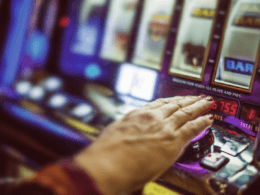Key Takeaways:
- Gambling addiction is a serious, life-threatening condition that particularly affects young people, with around 400 gambling-related suicides in the UK annually.
- The digital age of betting apps and online gambling has exacerbated the issue, making gambling more accessible and addictive.
- Despite proposed government reforms, the rapid evolution of the gambling industry, especially with the use of AI, may outpace regulatory efforts, leaving many vulnerable.
In a world where every smartphone can become a casino, the story of Mark Bradshaw is a chilling reminder of the dark side of gambling. After two decades of betting, Bradshaw's life spiraled out of control, leading him to the brink of suicide. His story, along with those of Ryan Cowley and Robert*, illustrates a harrowing journey through addiction, desperation, and the fight for redemption. This isn't just a tale of personal struggle; it's a stark illustration of a broader epidemic plaguing our society.
The lure of quick wins and the thrill of the bet have ensnared many, but the consequences can be devastating. With the UK facing an alarming rise in gambling-related suicides and young people increasingly at risk, the call for change has never been louder. Yet, as the digital era brings new challenges with the proliferation of betting apps and online platforms, the battle against gambling addiction becomes even more complex.
Dr. Marc Potenza's insights on the neurological underpinnings of gambling disorders reveal a disturbing truth: our brains, especially those of the young, are being rewired for addiction. The promise of easy money, combined with aggressive advertising and the allure of the digital world, creates a perfect storm for dependency. But what makes the situation even more dire is the industry's rapid adaptation to technology, using AI to tailor bets and games that feed the addiction cycle.
Despite impending government reforms aimed at mitigating the issue, the question remains: Will it be enough? The Gambling Reform Bill, despite its intentions, seems to lag behind the industry's technological advancements. The alarming influence of the Betting and Gaming Council and the staggering £1.5 billion pumped into advertising underscore the monumental challenge of curbing an industry that thrives on addiction.
The personal stories of Bradshaw, Cowley, and Robert* are more than cautionary tales; they are a desperate plea for action. As society grapples with the fallout of unchecked gambling, the repercussions extend far beyond individual lives, hinting at a looming public health crisis. The NHS's expansion of treatment centers is a step forward, but as Bradshaw's journey from despair to advocacy shows, overcoming this addiction requires a societal shift.
In the face of an industry armed with sophisticated technology and an insatiable appetite for profit, the path to reform is fraught with obstacles. But as Bradshaw's story illustrates, hope and resilience can emerge from the depths of despair. The fight against gambling addiction is not just about saving individual lives; it's about safeguarding our collective future from the clutches of an industry that preys on vulnerability. As we navigate this digital age, the stakes have never been higher.










